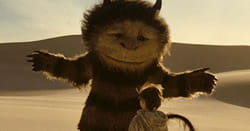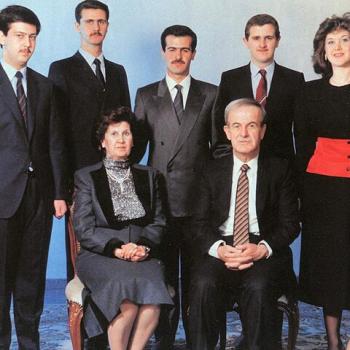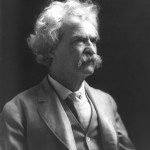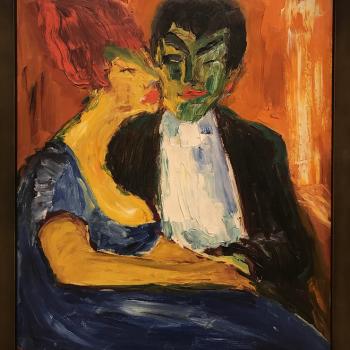 "In a word, the great difference between Sendak's book and Jonze's film is that the book is about anger, while the film is as much about sadness. Here is a film broken-hearted over the messiness of the world. It is sad, and beautiful, and true." - Steven D. Greydanus
"In a word, the great difference between Sendak's book and Jonze's film is that the book is about anger, while the film is as much about sadness. Here is a film broken-hearted over the messiness of the world. It is sad, and beautiful, and true." - Steven D. Greydanus
When legendary author Maurice Sendak was told of concerns that the film based on his beloved Where the Wild Things Are was too mature for young audiences, his reply was remarkably direct (if a trifle impolitic). "I would tell them to go to hell," he said. "That's a question I will not tolerate." Pressed further, Sendak dismissed the notion of inappropriateness altogether. "I saw the most horrendous movies that were unfit for child's eyes," he reminded his interviewer. "So what? I managed to survive."
The vehemence of Sendak's response should come as no surprise. The author has railed long and loudly against the Disneyfication of young American imaginations, and the many battles he waged against the suggestion that Where the Wild Things Are (and his subsequent work, In the Night Kitchen) were but thinly-veiled attempts to "demythify" the innocence of childhood have undoubtedly left him a bit sore on the subject.
Moreover, the book is easily defended against such claims. Its imagery—harshly criticized when the book was first released—is more fantastical than frightening. And while some of the issues raised are undeniably complex, they simmer well under the surface of most youthful consciousnesses. In fact, Where the Wild Things Are is far more likely to trouble adults than children, and one suspects that much of the initial resistance to Sendak's work is tied to that very fact.
But is that same defense applicable to the film? Or do the radical differences in mediums bring validity to the parental concerns that Sendak's original manages to avoid?
The book itself, first published in 1963, is a marvel of concision and visual storytelling. In thirty-seven captivating pages (bolstered by a mere ten sentences of dialogue), the reader is introduced to Max, an exuberant young boy whose propensity for mischief has landed him in bed without supper. Magically ignoring the restricting walls of his room, Max travels to an imaginary island populated by a herd of large, angry "things"—outlandishly shaggy, inimitable monsters who are greatly impressed by Max's own wildness, embrace him as one of their own, and gleefully name him King of all Wild Things. After a series of rambunctious melees—"Let the wild rumpus start!" Max proclaims with his first royal command—the newly-crowned king bids his subjects farewell and returns home, somewhat chastened by his experience of authority. Upon arriving safely within the walls of his bedroom once again, he is pleasantly surprised to discover that his soup has been set aside for him, "and it was still hot."
The material that flows from Sendak's wondrous pen is much too short for a feature film. As a result, the film's director (Spike Jonze) and his co-writer (best-selling author Dave Eggers) were faced with the unenviable task of crafting a larger, more complex edifice to fit around Sendak's original work—one that hits many of the same plot points, but goes far beyond them. Now, rather than simply experiencing (and subduing) the Wild Things, Max comes to understand why they are wild. Instead of spending his time on the island "rumpussing" it up with his nameless subjects, the young boy struggles to find an explanation for the sadness that permeates so many of their waking moments. (In one of the film's most poignant scenes, a confused Max asks for guidance in confronting the most difficult task he has ever set himself. "How do I make everyone Okay?" he beseeches his listeners, deeply moved by the suffering of his new-found friends.)





